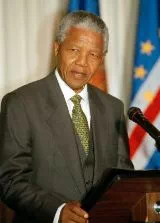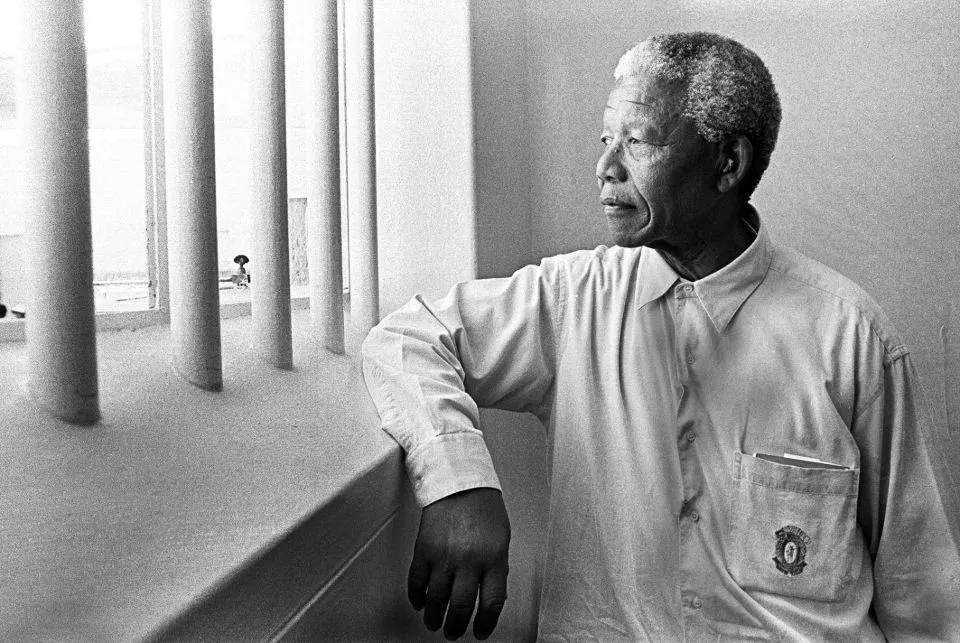Mahatma Gandhi
A lot of the time, when people think of globa...
By Susan Giles1529

0

Every few decades, an international character emerges to change the world as we know it. In the case of Nelson Mandela, the South African icon, he changed the political sphere of his country and inspired many others to change the way they go about their politics.
Mr. Mandela was known for his fierce attitude and leading character. He was a revolutionary who suffered from a hard life that only made him stronger in the long run.
Nelson Mandela, who was given the name Rolihlahla Mandela at birth, was the son of Chief Henry Mandela of the Madiba clan. He was born on July the 18th, 1918, in the village of Mvezo in South Africa’s Eastern Cape. Mandela’s father died when he was just 12-years-old. Proceeding his father’s death, the people of Jongintaba at Tembu took it upon themselves to raise the young boy and help him find his way into becoming a lawyer.
He decided that the chieftainship path was not for him and that he would rather find his own way in law, and that was exactly what he did. That is why he made his way into the South African Native College, which is now known as the University of Fort Hare. Then he continued his education by attending the University of the Witwatersrand, where he finally managed to get the qualifications he needed to become an aspiring lawyer.
The reason behind Mandela leaving his first university course at South African Native College was because he joined a protest and got expelled. That move infuriated the king at the time, which made it almost impossible for him to return to the same college for a while. That was why he moved his studies to the University of Witwatersrand.
However, he eventually graduated from Fort Hare in 1943 and later got his qualifications from Witwatersrand as well. From early on, it was pretty obvious Nelson Mandela was destined to become a revolutionary who was not that keen about the rules if they did not serve their rightful purpose. All he cared about was justice and human rights.
Entering the world of politics was inevitable for Mandela. It was not just because of his heritage that pretty much meant he was born into that world, but also because he was quite keen on human rights from early on. In 1952, Nelson Mandela established his very own and the very first Black law practice in Johannesburg.
The main purpose behind that practice was to help people with cases that challenged South Africa’s past laws that meant all non-whites had to carry documents with them as they move around the country. Mandela was adamant to end racism and get black people their full rights back. He also joined campaigns to fight the restrictions against black people entering certain areas that white people got complete access to.
Mandela had joined the African National Congress in 1942 and rose through the ranks over the years pretty quickly as a result of his evident efforts at the party. By the end of 1952, as he was just reaching a peak with his anti-racism campaigns and black rights defense law firm, he was banned for the very first time. As a restricted person, he wasn’t able to do different activities, including travel, association, and speech, all because of his heroic activism work.

A few years after his restriction, and specifically in 1956, Mandela was arrested in a countrywide swoop with more than 100 different public figures got detained at that time. He was charged with treason as a result of his activism, which led to a trial that was witnessed by millions of people from across the country. A state of national emergency was announced across the country during that period.
The court proceedings lasted for years on end until he was eventually acquitted in 1961. During that long period of the trial, he divorced his first wife and married his new wife in 1958, Nomzamo Winifred Madikizela, who was a social worker at the time. They had two daughters, then later got divorced in 1996. After his acquittal, Mandela went underground for a while to plan for a national strike in hopes he can change the South African political sphere.
In 1960, there was a national massacre of unarmed black South Africans, after which Mandela decided to lay low for a while to prevent any more blood-shedding. He left the country for a while by using an alias name then upon his return, he was arrested and sentenced to five years in prison.
He, along with seven other men with similar circumstances, was sentenced to life in prison and nearly escaped the death penalty. Eventually, Mandela was released from prison in 1990 after a period of back and forth talks for his release and a period of illness in which he frequently visited the hospital.
Soon after his release from prison, Nelson Mandela was appointed deputy president of the ANC and later won a Nobel Peace prize in 1994. After long years of universal suffrage, Mandela officially won the South African presidency in May 1994. During his time in the presidency, he worked extensively on human rights issues and changed the way South Africans dealt with their black nationals.
South Africa’s liberator and international hero made history and changed the way black nationals are treated in his country as well as inspired change across the globe. Nelson Mandela served his country with passion and worked as hard as he possibly could to deliver proper democracy for all the people he led as the first black president.
Nowadays, he is remembered as a devoted hero who ended racism and made an impact on all aspects of South Africans’ lives. He died peacefully in his home in Johannesburg in December 2013. Mandela wanted to have a quiet exit as long as he had served his purpose and his people. He will always be remembered as a global hero.
Updated 4 years ago